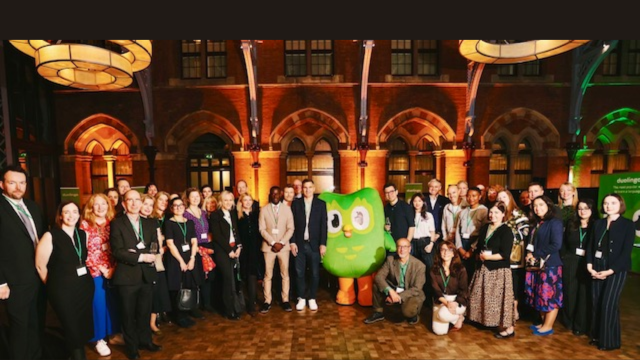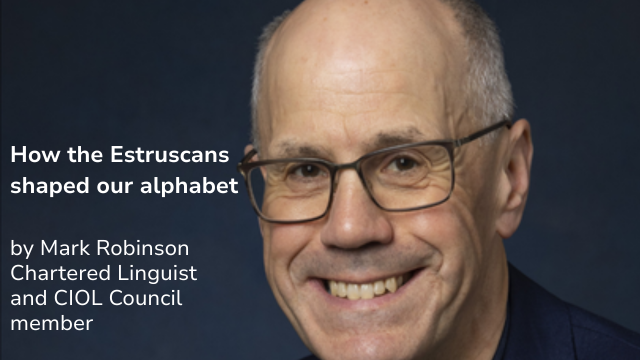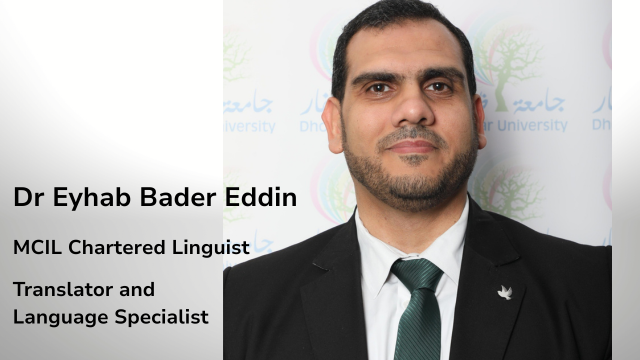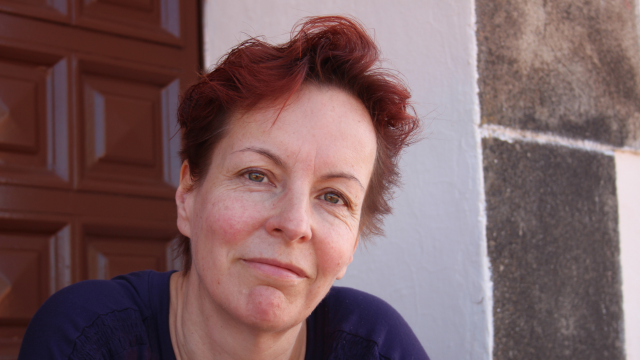-
QUALIFICATIONS
- For Linguists Worldwide
- For UK Public Services
- Preparation
- Policies & Regulation
-
MEMBERSHIP
- Join CIOL
- Professional Membership
- Affiliate Membership
- Chartered Linguist
- Already a member?
- Professional conduct
- Business & Corporate Partners
-
LANGUAGE ASSESSMENTS
- English
- All Other Languages
-
EVENTS & CPD
- Webinars & Events
- CIOL Conferences
- Networks
- CIOL Mentoring
-
NEWS & VOICES
- News & Voices
- CIOL eNews
- CIOL Awards
- The Linguist Magazine
- Jobs & Ads
-
RESOURCES
- For Translators & Interpreters
- For Universities & Students
- Standards & Norms
- CIOL & AI
- All Party Parliamentary Group
- In the UK
- UK Public Services
- Find-a-Linguist
The importance of languages and an international mindset in the 21st century
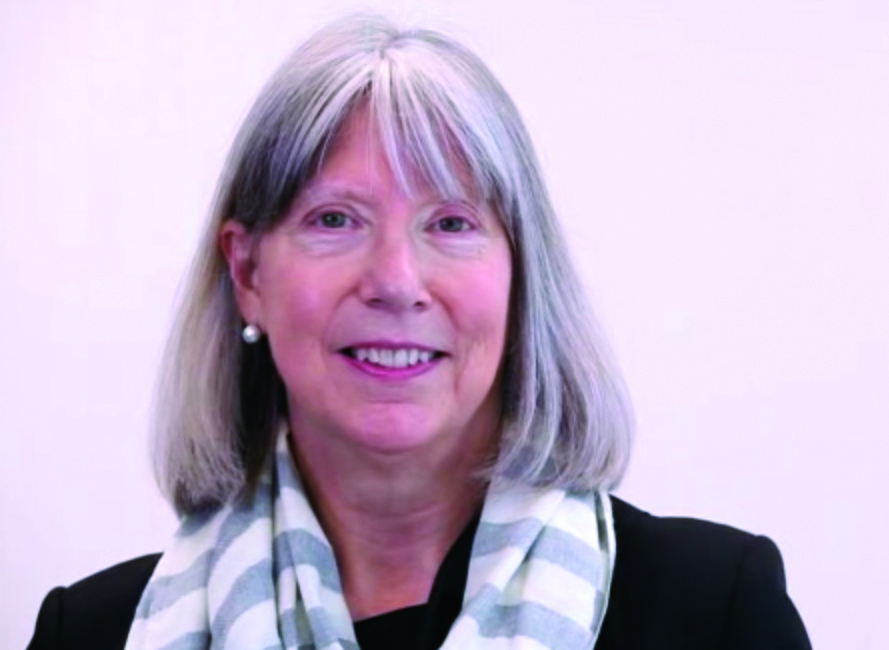
A shortened version of the keynote speech delivered by CIOL Honorary President Baroness Jean Coussins at Glasgow University, 9 May 2025
There has never been a better time to be a linguist, or to have a language as another string to your bow
Myth-busting
Let's address two persistent myths about language learning:
Myth 1: "Everyone speaks English" In the 21st century, English is not enough. Speaking only English is as much a disadvantage as speaking no English. Only 6% of the world's population are native English speakers, and 75% speak no English at all.
Myth 2: "Google Translate makes learning languages unnecessary" While machine translation has its place, it can never replace humans when it comes to nuance, cultural sensitivity, and complex understanding. It works reasonably well for standard European languages but struggles with languages having multiple dialects, like Arabic, and performs poorly with languages less represented in AI training data. AI commonly fails to detect sarcasm, irony, humour, slang, and euphemisms - areas where human interpreters excel.
The demand for language skills in the UK
English-language internet content is declining proportionally, while Mandarin content soars. Arabic is the most used language across social media platforms, and there are more blogs in Japanese than in English. French and German regularly top UK employers' skill-set wish lists.
Research by Professor Wendy Ayres-Bennett at Cambridge University on the economic value of learning languages found that teaching more people French, Spanish, Mandarin, and Arabic could increase UK exports by £19 billion annually. The British Council added German to create the top five languages needed for UK prosperity and influence post-Brexit. The next five in importance are Italian, Dutch, Portuguese, Japanese, and Russian.
We must also ensure our approximately 2 million bilingual children have opportunities to gain academic qualifications in their home or heritage languages, many of which are strategically important to the UK.
What are we missing?
Unlike classics, science, and history, languages have no high-profile media figures or prime-time TV programmes to inspire the next generation. This is partly because language, and its accompanying cultural knowledge, is both an academic discipline and a vital enabling ingredient running through all other disciplines - making languages somewhat invisible.
Yet language skills demand has never been greater across virtually every economic sector, with higher-than-average demand in Financial Services, IT and Telecommunications, Passenger Transport, Fashion & Design, and Tourism. British companies lose £50 billion worth of contracts annually (3.5% of GDP) due to workforce language skill deficiencies.
As new markets open in the Far East, Central Asia, and Latin America, employers seek not only French and German speakers but also Mandarin, Cantonese, Spanish, Russian, and Arabic speakers. The security and diplomatic services, and humanitarian aid organisations, need people fluent in Farsi, Hindi, Turkish, Portuguese, and Korean, among others. The Foreign, Commonwealth & Development Office now provides training in 86 languages and the Defence Academy for Language and Culture in 40.
Languages in humanitarian work
The international NGO Translators Without Borders (who presented at this year’s CIOL Conference) have provided interpreters to work alongside health professionals during crises like the Ebola outbreak. Language is rarely prioritised in emergency responses, allowing misinformation to spread rapidly. In Sierra Leone, information was available mainly in English or French, but only 13% of women understand English. TWB developed its Words of Relief project, the first translation crisis relief network globally, translating and disseminating hundreds of Ebola-related materials. Recently, they've deployed people to refugee camps in Bangladesh to share accurate information about COVID-19 and vaccinations in appropriate languages.
Research at Reading University has demonstrated how much more effective development and humanitarian aid can be when language issues are addressed at every project stage.
The language industry
The language industry includes interpreting, translating, creating language teaching materials, subtitling, dubbing, and adapting websites. Estimated to be worth over 20 billion euros across the EU, it has a very high growth rate. As an English-speaking nation, the UK is uniquely positioned to capitalise on this expected growth worldwide.
Another often-overlooked career path by those outside our community of linguists, is of course public service interpreting. Qualified, professional interpreters are needed daily in courts, police stations and hospitals to interpret for those whose English is insufficient to understand proceedings where their rights, liberty or lives might be at stake.
The advantage of being a linguist
Language learning isn't just about grammar and vocabulary but also about understanding other cultures. Employers consistently value graduates with international and cross-cultural experience. One US study reported that employers rated language skills and an international mindset even more important than STEM expertise.
The value of international experience applies to everyone, not just linguists. Much cutting-edge research into climate change, development or counter-terrorism, for example, is international and comparative. Currently, graduates from the US, China, India, and EU countries are more likely to have additional languages alongside their main subject.
Finally, languages are good for your health. Research from Edinburgh University shows that learning and using another language can delay Alzheimer's onset by up to five years and significantly aid cognitive recovery after a stroke.
Conclusion
Not everyone needs to be a professional linguist, but whether we're discussing better public services, improving human rights, or negotiating trade deals, the social, economic, and soft power advantage in the 21st century belongs to multilingual citizens and nations.
Languages and an international mindset are the gateway to a more enriching and civilized coexistence with others, opening doors to careers in teaching, research, diplomacy, security, business, public service, development, and humanitarian aid. That’s why I always have and always will advocate for languages and linguists.
Baroness Coussins is Honorary President and an Honorary Fellow of the Chartered Institute of Linguists.
Views expressed on CIOL Voices are those of the writer and may not represent those of the wider membership or CIOL.
More
The Chartered Institute of Linguists (CIOL), Incorporated by Royal Charter, Registered in England and Wales Number RC 000808 and the IoL Educational Trust (IoLET), trading as CIOL Qualifications, Company limited by Guarantee, Registered in England and Wales Number 04297497 and Registered Charity Number 1090263. CIOL is a not-for-profit organisation.

